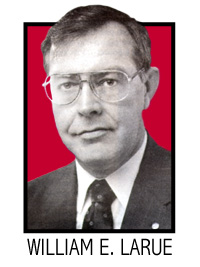 The word's
out. It's official. Americans work longer hours than anyone else in the world. Bet that
makes you feel good! The word's
out. It's official. Americans work longer hours than anyone else in the world. Bet that
makes you feel good!We beat out the Japanese, the next busiest working class around the
globe, by clocking almost two weeks more than workers in the Land of the Rising Sun,
according to a study by the International Labor Organization.
The victory (?) came not just through our efforts -- a 4 percent jump in work hours
from 1980 to 1997, but because the Japanese are goofing off. They cut down their time in
the plant/office by 232 hours over the same time period.
What's wrong with this picture?
It gets worse when you look toward Europe. Talk about slackers! In France, annual work
hours were 1,656, compared to 1,560 in Germany and 1,731 in Great Britain. We put in 1,966
hours, or an average of 38 hours a week. That might not sound like much, but back out
lunch hours, vacation time and holidays and it's tough to make that 38-hour mark without a
lot of late hours and weekends. Of course the other option is that you never eat lunch or
take time off. That's true in a lot of places as well.
Our productivity remains the highest as well-- each person produces an average of
$49,150 in goods in 1996, the last year data is available. But that barely beats out the
French, who led Europe at $47,958 for the same year. And remember, they're sleeping in.
Of course, working longer hours doesn't equate directly with productivity. Training and
technology are big factors. But so are attitude and energy. Could it be that worrying
about who's watching our kids, or all the housework that's piling up, while we're slaving
away, may just be a drag on our performance? Or maybe we just reach a point where we are
so tired we're just going through the motions?
Labor productivity in Europe has been increasing more quickly than in the United States
at the same time they have been cutting back hours. During that 1980-1996 time span, U.S.
productivity rose 22 percent while output in France, Germany and Britain increased by a
minimum of 30 percent in each country.
That comes despite labor policies that recognize quality of life off the job. What a
concept. In fact, France just introduced a bill to limit the work week to 35 hours. That
sound you just heard was corporate America gasping and clutching its chest in shock.
But at least we're rewarded for all our hard work, right? No, here's some more bad
news. Despite our record economic growth, the poorest workers are just sliding lower down
the ladder, reports the Center on Budget and Policy Priorities. Over the last decade,
income for the wealthiest 1 percent of Americans jumped 115 percent. Those schmucks in the
bottom fifth of wage-earners are getting 9 percent less income.
The middle class is just treading water. Why? Because profits made by that higher
productivity, driven in part by our longer hours, are all going to those who need it the
least.
Our incomes remained flat, despite the economic growth. Hourly wage deterioration is
the biggest culprit, though the phenomenon doesn't have a single cause. Call it what you
want -- "free" trade, global competition or simply corporate greed.
In the past, productivity growth was distributed more evenly. Now, we see little reward
for our hard -- and longer -- time at work. The Economic Policy Institute found that from
1989 to 1997, income for the median household grew by $285, or less than 1 percent. Boy,
that's worth putting in those extra hours, isn't it?
The other factor in this widening income inequality is the weakened role unions play.
Our ability to insist that employers share the wealth has kept pace with the falling union
density in the labor market. Now you don't think it's just a coincidence that those who
are getting all the money keep on funding anti-worker politicians who keep on passing
anti-union legislation? Is there a trend here? No, I must be hallucinating after working
too many hours?
We must register and vote. We must give time to our allies and money for political use.
For if we don't reward our Congressional friends and punish our Congressional enemies,
this can get worse. Remember Election 2000. |

